Hey Fellas! Its been awhile since my last post! Just didnt like the new format or should I say ” Couldnt figure out due to change” Puting an addition onto my house. I have a boiler and was thinking of puting in a forced air unit with a hot water coil to heat the space (about 900 sq ft). I am in NJ. Any Pros or cons in going this route. Any advice would be helpful. I do not have gas. Radiant floor is not in my budget.
Thank you and good to be back, Lou C

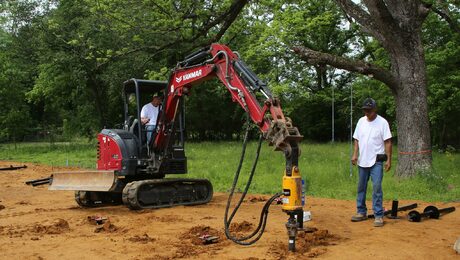

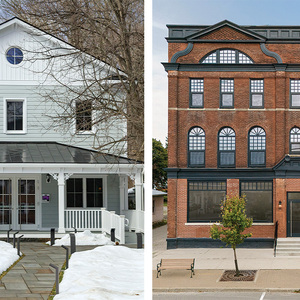
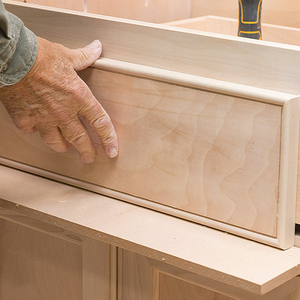
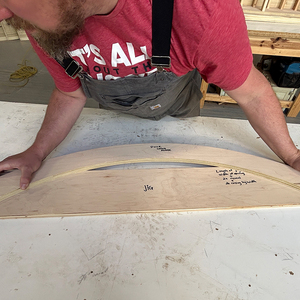
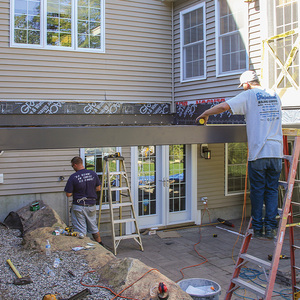













Replies
I'm glad you do not have gas! That's painfull and embarrasing sometimes, although you can have some fun with it, but I digress.
That sounds like a sizeable addition and it's unlikely the heating plant has enough reserve to take on the additional load. That can be determined by heat load calculations, and it's certainly possible that the boiler is capable of handling it. You may already know if it's possible if the boiler is capable.
Do you have oil heat, or electric?
I would consider a small heat pump first myself, since you want AC and forced air heat, but an oil fired furnace is also a possibility.
There are no substantial drawbacks to having a hot water coil in an air exchanger, if you can provide adequate heat for your area with the existing boiler. In fact, they are pretty cheap and easy to install.
It's also nice to have the furnace room outside the living space with an exterior door for quietness and servicability.
The boiler is adequate. Would the heat pump be expensive to run? My oil cost last year was 3000 just for my heat. Thinking the residual heat would aid to heat coil..... This unit will have AC to.
My oil cost last year was 3000
Lou,
Is this boiler newer?
Is the house HUGE?
Is it underinsulated?
Is Oil that high?
Man Lou, that's a bundle. Here in NW Oh in a 20 y.o. part in the ground, passive solar, pretty well insulated, radiant in the concrete floor, best I could do at the time-house-Year round Nat Gas usage-864.00 And that operates the range, dryer and domestic hot water also (off boiler).
Maybe looking at your entire heating system/insulation etc would be more prudent dollar wise in the long run.
That's definitely a large fuel bill.
I would be inclined to go the heat pump route. If you are keeping the house awhile you might be able to justify major changes to your heating system and get rid of the oil entirely.
Certainly if the boiler is older it would be worth it to do the numbers and see if a more efficient unit makes sense.
Markh, mussels in a red sauce followed by some ice cream. gas
I had pinto beans yesterday, I could have flared that gas off and heated your addition for a bit.
Heat pumps are very efficient in warmer climates, it's when the electric resistance coils are used that the efficiency plummets. The newer ground source heat pumps are very efficient, since they use burried tubing to extract heat from the ground rather than the air. How much? I dunno. There are varying claims. Installation cost is higher because of the tubing. There are machines that install the tubing like sprinkler lines, then there are the installations that are installed into a bored hole.
Here's a government document to help a bit.
http://www.maine.gov/spo/specialprojects/OETF/Documents/finalappendices_123109.pdf
They seem to indicate that it would be more efficient to heat with a heat pump instead of oil.
I would find a heating and air company you can trust for advice.
Here is a spreadsheet you can play with.
http://www.eia.doe.gov/neic/experts/heatcalc.xls
Efficiency of Heat Pumps
While the heat strips do pull quite a load when they are on, whether they are an economical choice depends on the costs of the electrical power as compared to other energy sources.
A kilowatt-hour is equal to 3412-BTU. As compared to other sources, the conversion from the energy source to heat is extremely efficient with a resistance heater, being for practical purposes 100%. My rate is 7-cents per kilowatt-hour, for return of 48,743-BTU/dollar.
Propane, my only other viable alternative, contains approximatley 92,000-btu/gallon, with a cost of $3.15 per gallon. This yields 29,206-BTU/dollar.
So, the electric resitance heat is 40% more economical than the propane, even if I assume the propane system is 100% efficient.
In the Pacific Northwest, with the reasonably priced hydropower, they make more sense than they would in other areas. But, my point is to do the math and really evaluate the cost to benefit of all the options.
I think the main issue is whether the water is hot enough and of enough volume to do the job. Don't know it for a fact, but I suspect you need fairly hot water for a heat exchanger setup like that to work well, plus you of course need the raw BTU capacity.
The hot water coils are rated in btu at 180f water temp.
some coils are
but any coil can be rated any any temperature.
A 2-row coil, 14 x 12...
with 4 gpm of 160 degree water, a 20 degree temperature drop and 800 cfm of 60 degree entering air will provide 36,000 btuh of heat to the air stream, with leaving air temperature of 106 degrees, well enough to heat 900 sf in Jersey, assuming solid walls with something resembling insulation.
In other words, unless the water is very low temperature (like less than 120 supply) a reasonably available hot water coil will work well.
Pros and cons
Pros, in my opinion are: it would be easy and twould ake advantage of what you already have. A blower coil with DX and hot water are easy find and setup, controls for the heat would be easy to do and potentially have more modulation than any other type of heat (i.e. providing a very controllable, comfortable forced air heater). You could add the AC later if budget required.
Cons would depend on the proximity to the system piping, how to tap into that system, both for water and controls. Look at MagicAire and TriangleTube air handlers for some options.
if I post the blue print can someone size a propane fired boiler
Tim, Could someone size the boiler for me if I post the blueprint and details on existing space? I may convert to propane from oil. The oil Company would want the specs on the new boiler... This would really help me out, I plan on doing most myself with guidance from my heating sub.
Thank you, Lou C
Your heating sub,
if worth using, should be able to do this for you. Otherwise, you have a plumber, not a heating sub, keep looking.
Could someone do this for you? Absolutely. When I sold boilers and designed residential radiant systems, I did this for my customers and their customers, somestimes. I would suggest you have this done locally by someone you know and trust. Someone with some "skin in the game".
I Have fintube units that stand 24 high by 36 wide and some base fin and tube. I do have an air-handler for AC.
Was thinking of keeping existing syatems in place, changing out boiler to propane fired and then dropping a hot water coil in handler that will drive the AC for the new space, BTW the new space if for my mother in law....
Thank you for the advice, Lou
BTW the new space if for my mother in law
Be sure to install a shutoff valve on the hot water line. Make it one you can partly close, a little at a time.